Overview
Janamaitri Foundation Institute of Health Sciences (JFIHS) is a dedicated health science college located at Hattiban, Lalitpur, within the wider Little Angels’ academic complex in the Kathmandu Valley. Established in 2010, the institute focuses on undergraduate health science education that follows the Institute of Medicine, Tribhuvan University curriculum and national regulations for teaching, clinical exposure, and assessment.
JFIHS currently offers four bachelor-level programs: Bachelor of Nursing Science (BNS), Bachelor of Science in Nursing (B.Sc. Nursing), Bachelor of Pharmacy (B.Pharm), and Bachelor of Science in Medical Laboratory Technology (B.Sc. MLT). These programs prepare health professionals who can serve in hospitals, community settings, laboratories, academia, and the pharmaceutical sector in Nepal and abroad.
The institute operates under the academic umbrella of Little Angels’ College of Higher Education and works closely with a network of partner hospitals in the Kathmandu Valley. Students study in a residential campus environment with access to skill laboratories, a well-equipped library, computer facilities, sports infrastructure, and structured clinical placements.
Highlights of JFIHS
-
Location: Hattiban, Lalitpur, inside the Little Angels’ academic complex.
-
Establishment: 2010 as a dedicated institute for health science education.
-
Academic base: Programs follow the Institute of Medicine, Tribhuvan University syllabus and examination standards.
-
Programs offered: BNS, B.Sc. Nursing, B.Pharm, B.Sc. MLT.
-
Regulatory framework: Admission and fees fall under the Medical Education Commission (MEC) of the Government of Nepal.
-
Clinical partners: Teaching–learning activities linked with hospitals such as Silverline (Janamaitri) Hospital, Paropakar Maternity and Women’s Hospital, Bir Hospital, Kanti Children’s Hospital, Tilganga Eye Hospital, Bhaktapur Cancer Hospital, and others.
-
Campus environment: Residential facilities, cafeterias, sports complex, library, and computer labs located within a wider educational hub in Hattiban.
-
Student outcomes: Graduates have received gold medals from the President of Nepal and have topped Institute of Medicine, Tribhuvan University board examinations.
Academic Programs Offered
JFIHS runs four bachelor-level programs with curricula aligned to national standards and the Institute of Medicine, Tribhuvan University. These programs respond to workforce needs in nursing, pharmacy, and medical laboratory sciences in Nepal and abroad.
Bachelor of Nursing Science (BNS)
The Bachelor of Nursing Science (BNS) is a three-year undergraduate program for registered nurses who already hold a Proficiency Certificate Level or Diploma in Nursing. The course deepens nursing knowledge, clinical judgment, and leadership capacity so that graduates can take on advanced roles in hospitals, nursing colleges, and community health programs.
The curriculum covers advanced medical–surgical nursing, maternal and child health, community health, management, and research. Students sharpen their clinical skills during postings in partner hospitals where they manage patients under close supervision, coordinate with multidisciplinary teams, and practise documentation and reporting. Graduates often progress toward positions such as senior staff nurse, ward in-charge, nurse educator, or coordinator in government and private facilities.
Bachelor of Science in Nursing (B.Sc. Nursing)
The B.Sc. Nursing program is a four-year degree for students who have completed Ten Plus Two (10+2) Science or equivalent with Physics, Chemistry, and Biology. The aim is to prepare registered nurses who can provide safe and evidence-based care in hospitals, community health settings, and public health programmes.
Students study anatomy, physiology, pharmacology, pathology, medical–surgical nursing, pediatric nursing, psychiatric nursing, obstetric and gynecologic nursing, community health nursing, and nursing research. Learning takes place through classroom sessions, skill-based practice in nursing laboratories, supervised ward postings, and community fieldwork. With progressive responsibility during clinical postings, students learn to assess patients, plan and implement care, and evaluate health outcomes.
On graduation, B.Sc. Nursing students become eligible for registration with the Nepal Nursing Council (NNC) and may work in hospitals, community health programs, teaching institutions, NGOs/INGOs, and pursue higher studies such as Master of Nursing or public health degrees.
Bachelor of Pharmacy (B.Pharm)
The Bachelor of Pharmacy is a four-year program that prepares students for academic and professional work across the pharmaceutical sector. The syllabus covers basic sciences, pharmaceutical chemistry, pharmaceutics, pharmacology, pharmacognosy, pharmaceutical analysis, and pharmacy practice.
Practical sessions in formulation laboratories, quality control units, and industry-linked visits help students understand how medicines are discovered, manufactured, stored, dispensed, and monitored. Graduates can work in hospital pharmacies, community pharmacies, pharmaceutical industries, quality assurance units, regulatory agencies, pharmacovigilance centres, research organisations, and academic institutions.
Students with a prior Health Science Proficiency Certificate or Diploma in Pharmacy who meet eligibility and council registration requirements can also enter this pathway through the MEC process.
Bachelor of Science in Medical Laboratory Technology (B.Sc. MLT)
B.Sc. MLT is a four-year degree focusing on laboratory investigation and diagnosis of diseases. The program covers clinical biochemistry, clinical pathology, hematology, microbiology, immunology, histo-cytopathology, molecular techniques, and laboratory management.
Students spend extensive hours in MLT laboratories, learning specimen collection, processing, and interpretation of results under supervision. They also undergo postings in hospital laboratories listed as partner institutions, where they learn workflow management, quality control, biosafety, and reporting standards.
After graduation and registration with the Nepal Health Professional Council (NHPC), B.Sc. MLT graduates can work as medical laboratory technologists in hospitals, diagnostic centres, research laboratories, public health surveillance units, and academic departments, both within Nepal and internationally.
Admission Process and Eligibility
Admission to bachelor-level health science programs at JFIHS follows national guidelines set by the Medical Education Commission (MEC) of Nepal. MEC is the central government body responsible for bachelor and postgraduate entrance examinations and for regulating fee structures in medical and allied health education.
Eligibility Criteria
According to the official prospectus and MEC-aligned requirements:
-
B.Sc. Nursing
-
10+2 Science (Physics, Chemistry, Biology) or equivalent with at least 50% aggregate or CGPA/GPA 2.4.
-
A-Level or equivalent qualification with Biology, meeting the same grade requirement.
-
-
BNS
-
Proficiency Certificate Level or Diploma in Nursing with minimum 50% or CGPA/GPA 2.4.
-
Valid registration with the Nepal Nursing Council.
-
-
B.Pharm
-
10+2 Science with Physics, Chemistry, Biology and at least 50% or CGPA/GPA 2.4,
-
or A-Level equivalent with required grades,
-
or Health Science Proficiency Certificate/Diploma in Pharmacy with 50% or CGPA/GPA 2.4 and Pharmacy Council registration.
-
-
B.Sc. MLT
-
10+2 Science with Physics, Chemistry, Biology and at least 50% or CGPA/GPA 2.4,
-
or A-Level equivalent with required grades,
-
or Health Science Proficiency Certificate/Diploma in Medical Laboratory Technology with 50% or CGPA/GPA 2.4 and NHPC registration.
-
Admission Steps
-
MEC Entrance Application - Eligible candidates apply for the Medical Education Commission bachelor-level entrance examination (MECEE-BL) through the MEC online portal within the announced deadline.
-
Common Entrance Examination - Applicants sit for a national competitive exam where questions cover basic sciences and relevant health science content. The result sheet published by MEC is the base for further selection.
-
College Selection and Priority - While filling priority lists or during counselling, candidates may choose JFIHS for BNS, B.Sc. Nursing, B.Pharm, or B.Sc. MLT seats according to MEC rules for Nepali and foreign applicants.
-
Institutional Admission Process - After MEC publishes the matching list, selected candidates complete registration at JFIHS by submitting academic certificates, council registration documents (for BNS, B.Pharm lateral entrants, B.Sc. MLT diploma holders), photographs, and other required documents.
-
Fee Structure - Tuition and other payable amounts follow the fee ceiling fixed by MEC for each program and category. The college prospectus refers students to the official MEC fee structure for current figures.
Teaching Faculty and Learning Methodology
A key feature of JFIHS is the presence of experienced faculty members who combine years of teaching, clinical practice, and research. The leadership team includes:
-
Professor Dr. Radha Ranabhat, Principal, with more than four decades of experience in nursing, midwifery, women’s health, and national training programmes.
-
Mr. Dev Raj Ghimire, Chief Administrator, with over 25 years of academic and administrative work within the Little Angels’ group of institutions.
-
Program coordinators and faculty members in Nursing, Pharmacy, and Medical Laboratory Technology who hold master’s and doctoral degrees, maintain professional council registrations, and regularly publish research articles in national and international journals.
Several faculty members have published research in journals of publishers such as Elsevier, Taylor & Francis, Oxford University Press, and others, with measurable citation records. One of the MLT coordinators, for example, has more than 700 citations and an h-index of 10, reflecting active engagement in scientific work.
Learning and Teaching Approach
Teaching at JFIHS combines:
-
Structured lectures and interactive classroom sessions.
-
Practical demonstrations in skill laboratories and specialized labs for each department.
-
Clinical postings in partner hospitals where students work alongside consultants, nurses, pharmacists, and technologists.
-
Community visits and health camps that link classroom learning with public health challenges in surrounding communities.
-
Student seminars, journal clubs, and project work that introduce research skills and academic writing.
Faculty members regularly participate in Training of Trainers (TOT) courses, workshops on research methodology, national and international conferences, and academic networking events. These activities help maintain alignment with current textbooks, guidelines, and regulatory frameworks in Nepal and abroad.
Infrastructure and Learning Facilities
Classrooms and Academic Spaces
Classrooms at JFIHS are described as spacious, well-ventilated, and suitable for interactive learning. The college maintains a limited number of students per classroom to support discussions, questioning, and use of audiovisual teaching aids such as projectors and multimedia resources.
Laboratories
The institute provides a full set of laboratories matched to each program:
-
Nursing Skill Labs
-
Fundamental Nursing Lab
-
Community Health Nursing Lab
-
Nutrition Lab
-
Anatomy Lab
-
Midwifery Lab
-
-
Pharmacy and Basic Science Labs
-
Biochemistry
-
Pharmacology
-
Chemistry
-
Pharmaceutical Technology
-
Pharmacognosy
-
Pharmaceutical Analysis and Quality Control
-
-
Medical Laboratory Technology Labs
-
Hematology
-
Clinical Pathology
-
Microbiology
-
Clinical Biochemistry
-
Anatomy
-
These laboratories support hands-on learning in a controlled environment before students move into hospital settings. Equipment is selected to match the laboratory techniques taught in the curriculum and the standards of partner hospitals.
Library and Learning Resources
The library houses textbooks, reference books, journals, theses, and research reports related to nursing, pharmacy, medical laboratory science, public health, and social sciences. A digital library section, along with access to journals and periodicals, supports literature review and research assignments.
Computer Laboratory and ICT
The computer lab provides individual computer access for students for assignments, data analysis, and literature searches. The campus offers internet connectivity and common software relevant to health science students so that they can prepare presentations, reports, and research work effectively.
Residential Facilities and Cafeterias
JFIHS offers residential halls within the Little Angels’ campus. Students are informed of clear responsibilities around safety, conduct, and guest policies. Wardens and residential staff support daily life, while backup power, dining facilities, security arrangements, and multiple room options are provided.
Cafeterias on campus serve hygienic meals and snacks, with separate vegetarian and non-vegetarian options and attention to food safety.
Sports and Recreation
Students have access to the LA Sports Complex, which includes a swimming pool, football ground, basketball, volleyball, lawn tennis courts, and table tennis hall. Physical education is treated as a regular part of college life, and students are encouraged to participate in intra- and inter-college competitions.
Transportation
College buses operate along major routes around the Ring Road and adjoining areas, with conductors on board and standard safety measures. Students who wish to travel independently must hold a valid driving licence and follow campus regulations.
Student Life and Campus Experience
Life at JFIHS is shaped by the residential setting, academic expectations, and the wider Little Angels’ educational environment. Students learn alongside peers from Nursing, Pharmacy, and MLT, while sharing some facilities with other LA institutions.
Residential halls promote independence and shared responsibility. Students are expected to respect quiet hours, protect personal belongings, follow safety protocols, and seek permission when leaving campus. In return, they receive structured support from wardens, counselling services, and a sense of community living.
The campus culture encourages group projects, presentations, and peer learning. Faculty–student interaction is frequent because many teachers are available for mentoring beyond the classroom. Health camps, community postings, and hospital rotations also build teamwork skills, communication confidence, and professional discipline.
Student well-being services include counselling, guidance on study skills, and sessions on mental health awareness. The goal is to help students manage the high demands of health science programs while maintaining personal balance.
Photo Gallery

Extracurricular Activities (ECA)
Beyond academic and clinical work, students participate in cultural programmes, sports meets, excursions, and student-driven events. Residential halls and the sports complex offer opportunities for regular activities, while student council members help coordinate events in coordination with faculty and administration.
Health science–related ECAs include:
-
Community health camps organized in nearby communities.
-
Awareness programmes on topics such as nutrition, sanitation, maternal health, and non-communicable diseases.
-
Participation in national health days in collaboration with partner hospitals or other organisations.
These experiences support communication skills, leadership, and a sense of social responsibility, which align with the expectations placed on health professionals in Nepal’s health system.
Scholarships and Financial Support
JFIHS operates within the national scholarship and fee framework governed by the Medical Education Commission. At the national level, MEC provides scholarship seats in bachelor-level programs such as B.Sc. Nursing, BNS, B.Pharm, and B.Sc. MLT through its common entrance mechanism and scholarship quotas.
Within the institution, the prospectus mentions:
-
Internal grants to encourage student research projects.
-
Scholarships or financial assistance for academically strong or needy students, aligned with college policy and applicable regulations.
-
Recognition and awards for students who secure top positions in Institute of Medicine board examinations or receive national academic honours such as the “Nepal Rastriya Bidhya Padak.”
Applicants and guardians should always check the latest MEC notices and the current JFIHS prospectus or official website for up-to-date information on scholarship categories, quotas, and required documents.
Achievements and Institutional Milestones
Since its establishment in 2010, JFIHS has built a track record in academic performance and graduate outcomes.
Key achievements include:
-
Graduates who have topped Institute of Medicine, Tribhuvan University examinations in B.Sc. MLT and B.Sc. Nursing.
-
Gold medals from the President of Nepal (“Nepal Rastriya Bidhya Padak”) awarded to several JFIHS nursing graduates.
-
Faculty involvement in funded research projects supported by the University Grants Commission and Nepal Health Research Council.
-
Participation of nursing and other faculty in national scientific conferences, including meetings coordinated by the Nepal Health Research Council.
-
Alumni who have progressed to roles in hospitals, universities, and research centres in Nepal, Canada, the United States, and other countries, as reflected in alumni profiles on the institutional website.
These achievements support the institute’s reputation among students, healthcare employers, and academic reviewers who look at measurable academic and professional outcomes.
Why Choose Janamaitri Foundation Institute of Health Sciences?
For Nepali and international students seeking a health science college in Nepal under the Institute of Medicine, Tribhuvan University curriculum, JFIHS offers several practical strengths:
-
Focused health science portfolio: Four bachelor programs in Nursing, Pharmacy, and Medical Laboratory Technology.
-
Integration with Little Angels’ campus: Shared infrastructure and a stable institutional network at Hattiban.
-
Clinically oriented training: Regular postings in well-known hospitals across Kathmandu Valley, allowing students to see routine and advanced cases.
-
Experienced faculty: Senior professors and assistant professors with long clinical and teaching careers, international training, and research output.
-
Residential campus life: Hostel facilities, sports complex, cafeterias, and transport help students from outside Kathmandu integrate into academic life.
-
Regulated fees and admission: Transparency through MEC-managed entrance examinations and fee ceilings.
Messages from the Leadership
From the Founder Chairperson and Co-chairperson
Founder Chairperson Mr. Umesh Shrestha and Founder Co-chairperson Mrs. Bidya Limbu describe JFIHS as a response to Nepal’s need for competent, ethically grounded health professionals. They highlight academic rigour, service to society, and leadership development as guiding ideas when the institute started in 2010. Their message stresses that professional education should combine clinical ability with moral integrity and social responsibility.
From the Principal
Principal Professor Dr. Radha Ranabhat notes that JFIHS seeks to nurture both intellectual growth and strong value systems. Her message outlines three pillars: quality classroom teaching, extensive practical exposure in hospitals and communities, and encouragement of co-curricular activities that support confidence and leadership. She also underlines the importance of participation in national and international conferences, research grants, and academic networking for both faculty and students.
From the Chief Administrator
Chief Administrator Mr. Dev Raj Ghimire focuses on the administrative commitment to a student-centred environment. He explains that the administrative team works to keep facilities, laboratories, hostels, and transport functioning reliably so that students can concentrate on studies and clinical work. His message also notes the role of administration in coordinating clinical postings, industrial visits, and community work so that learning extends beyond the classroom.
Conclusion
Janamaitri Foundation Institute of Health Sciences (JFIHS) has grown since 2010 into a specialised hub for bachelor-level health science education in Nepal. Located at Hattiban, Lalitpur, and linked with the Little Angels’ academic network, the institute delivers BNS, B.Sc. Nursing, B.Pharm, and B.Sc. MLT programs under the framework of the Institute of Medicine, Tribhuvan University and national regulations.
With structured curricula, experienced faculty, strong laboratory and clinical infrastructure, residential facilities, and measurable academic achievements, JFIHS provides a transparent and verifiable option for students, parents, and planners seeking factual information on health science education in Nepal.
Frequently Asked Questions (FAQ)
1. Where is Janamaitri Foundation Institute of Health Sciences located?
JFIHS is located at Hattiban, Lalitpur, inside the wider Little Angels’ campus area on the southern side of the Kathmandu Valley. The institute is accessible by public and college transport from major parts of Kathmandu, Lalitpur, and nearby districts.(lajf.edu.np)
2. Which bachelor programs are offered at JFIHS?
The institute offers four bachelor-level health science programs: BNS, BSc Nursing, B.Pharm and BSc MLT.
3. How does the admission process work?
All candidates must first meet academic eligibility requirements for their chosen program and then apply for the Medical Education Commission bachelor-level common entrance examination (MECEE-BL). Selection is based on MEC results, priority choices, and matching lists. After MEC allocates seats, JFIHS completes college-level admission with document verification and payment according to the MEC fee structure.
4. Are hostel and transport facilities available?
Yes. JFIHS provides residential halls within the campus with wardens, security arrangements, dining facilities, and rules for safe community living. College buses serve routes around the Ring Road and adjoining areas, with standard safety measures in place.
5. What type of clinical exposure do students receive?
Students complete clinical postings and practicum rotations in partner hospitals such as Silverline (Janamaitri) Hospital, Paropakar Maternity and Women’s Hospital, Bir Hospital, Kanti Children’s Hospital, Mental Hospital, Tilganga Eye Hospital, Bhaktapur Cancer Hospital, and other health facilities. These postings are structured according to program requirements and supervised by faculty and clinical preceptors.
6. How are fees and scholarships regulated?
Tuition fees and other major charges follow ceilings set by the Medical Education Commission for each program. MEC also manages national scholarship seats, while JFIHS may provide additional internal grants, merit awards, or need-based support according to its policy and current regulations. Applicants should consult both MEC notices and the latest JFIHS prospectus or website for detailed figures and categories.
Contact Janamaitri Foundation Institute of Health Sciences's administrative office for detailed information on the course, admissions, location, fees, scholarships, facilities, counseling or eligibility.
Contact Details
Janamaitri Foundation Institute of Health Sciences
Email Address: info@lajf.edu.np
Phone Number: +977-1-5912721, +977-9851322701, +977-9851322711, +977-1-5912723
Location: Hattiban, Lalitpur, Nepal



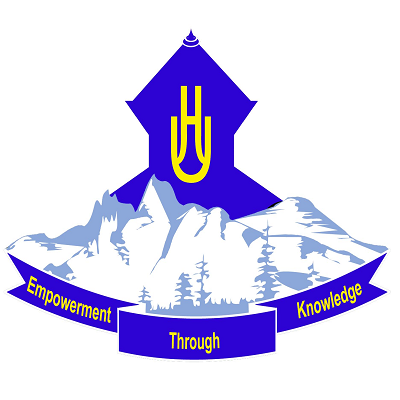
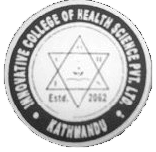
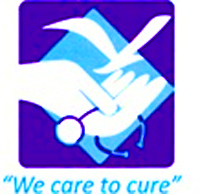
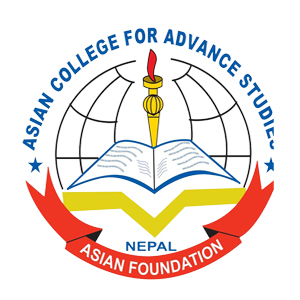

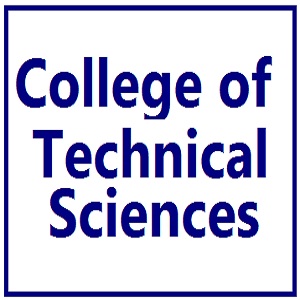










You need to login to comment.